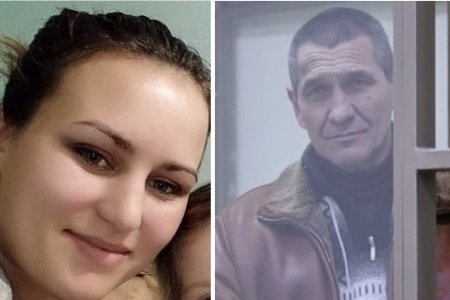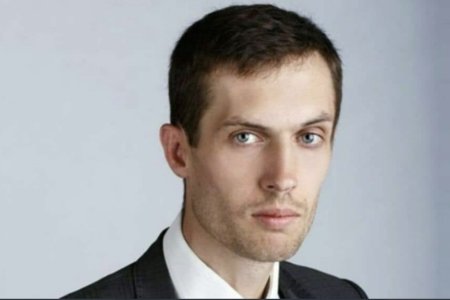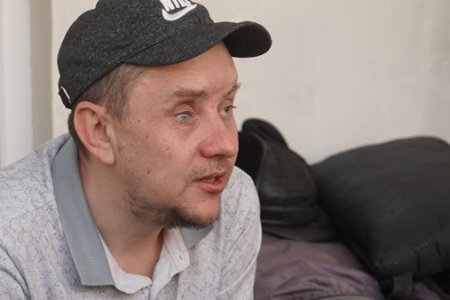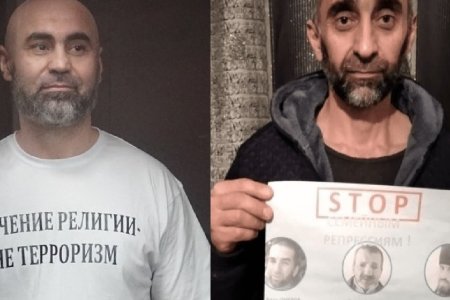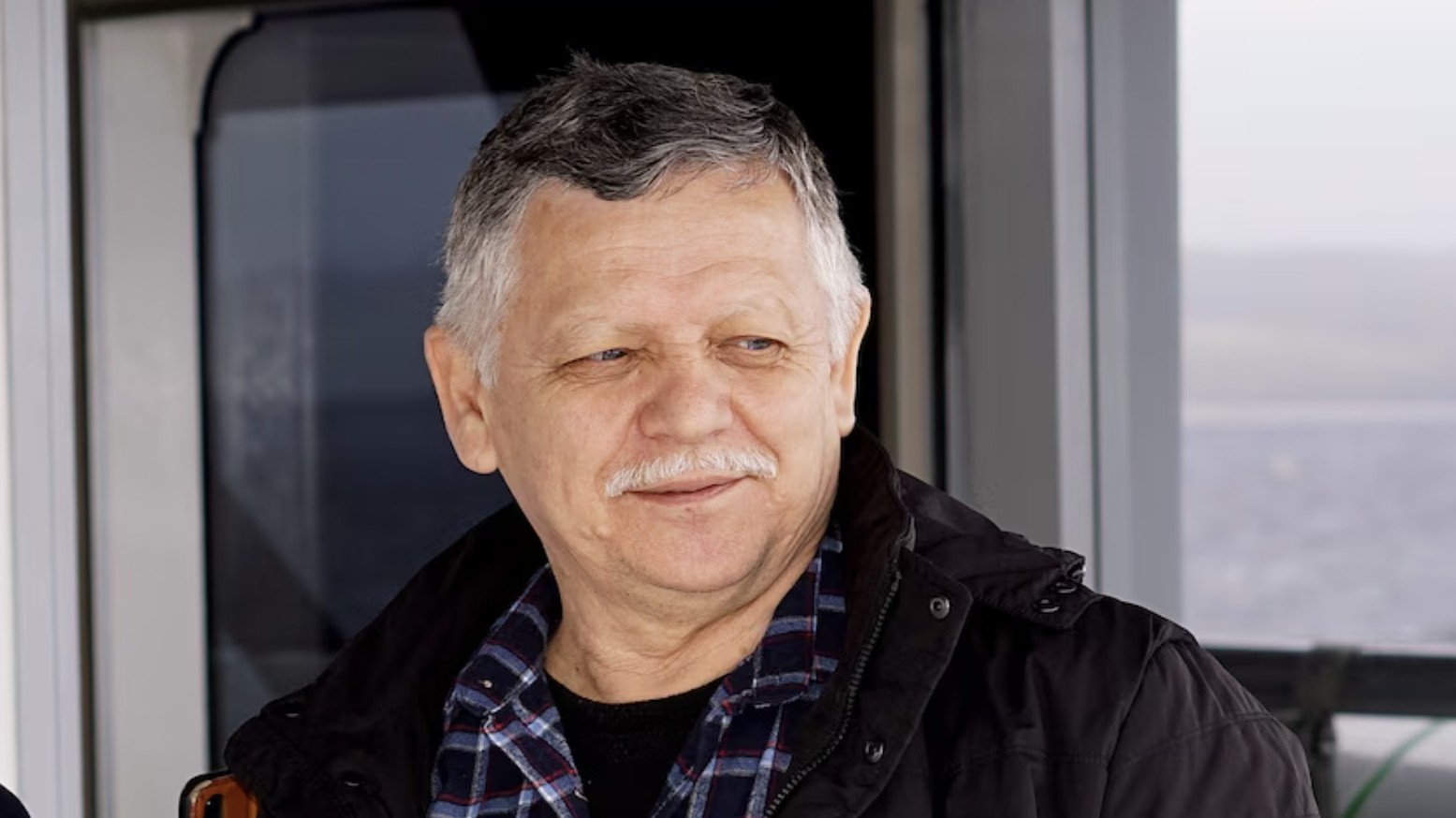
Russia has imprisoned Crimea-based marine biologist Leonid Pshenichnov and is accusing the 70-year-old Ukrainian of ‘treason against Russia’, with this carrying a near guaranteed sentence of from 12-20 years’ imprisonment. Pshenichnov’s colleagues at Ukraine’s National Antarctic Research Centre are convinced that the Ukrainian has become “the first Antarctic political prisoner’ whom Russia is persecuting because of his opposition to its plans involving overexploitation of the Southern (Antarctic) Ocean. The situation is particularly critical because of Pshenichnov’s age and health issues.
It seems that Pshenichnov was seized in Kerch (Crimea) in the middle of September, with it unclear whether his colleagues did not make public statements a month ago in the hope of international intervention, or because, as is often the case, Russia did not immediately acknowledge his imprisonment. They believe that Pshenichnov’s arrest was timed to prevent his participation in the annual meeting of the Commission for the Conservation of Antarctic Marine Living Resources (CCAMLR) which began in Hobart (Australia) on 20 October.
The charge of ‘state treason’ is, as always, immensely cynical, being based solely on the fact that anybody living on occupied territory is essentially forced to take Russian citizenship.
Given the mounting repression in occupied Crimea and huge escalation in ‘treason’ charges since Russia launched its full-scale invasion of Ukraine, Pshenichnov might well have been an obvious target even without his perceived obstruction to Russia’s economic plans for the Southern Ocean. He had apparently, worked for many years at the Southern Research Institute of Marine Fisheries and Oceanography in Kerch, but left in 2015, moving to Ukraine’s Institute of Fisheries and Marine Ecology in Berdiansk (Zaporizhzhia oblast). He then worked for its successor, the Institute of Fisheries, Marine Ecology and Oceanography in Kyiv, created in 2023. He had thus remained loyal to Ukraine, when first Crimean, then Berdiansk came under occupation, while continuing to live in occupied Crimea because he did not want to leave his family. It seems that he has represented Ukraine at the Commission for the Conservation of Antarctic Marine Living Resources since 1996, and there are photos of him together with colleagues at the annual meeting in 2024.
The Commission seeks to implement an ecosystem approach to marine resources to avoid their overexploitation. It approves quotas for Antarctic krill and other fish catches and endeavours to protect Antarctic marine living resources by, for example, establishing marine protected areas in the Southern Ocean. His colleagues explain that Pshenichnov has played an active role in the Commission as Ukraine’s representative and was one of the authors of Ukraine’s justification for its initiative to establish a new marine protected area near the Antarctic Peninsula. This initiative, and all others at the 2024 annual meeting, on marine protection were blocked by Russia and China.
Russia’s ‘treason trials’ are always held behind closed doors and, even where the defendant has an independent lawyer, the person is forced to sign a non-disclosure agreement.
Here, however, Russia appears to be quite openly linking the prosecution with Pshenichnov’s efforts, as Ukraine’s representative, to protect the Southern Ocean, in particular by establishing marine protection areas. This is claimed to ‘threaten the security of the Russian Federation’.
Vasyl Myroshnychenko, Ukraine’s Ambassador to Australia, provided the Australian Broadcasting Corporation with the document apparently issued to Pshenichnov’s lawyers setting out the charges against him. This treats Pshenichnov as ‘Russian’ and claims that he “defected to the enemy” by participating, as a member of Ukraine’s delegation, in the CCAMLR annual meetings. He is accused of having used his research to undermine Russia's krill fishing operations near the Antarctic Peninsula by encouraging CCAMLR to introduce tighter catch limits. Russia claims the right to charge the Ukrainian marine biologist with ‘treason’ because it saw such action, which it had, in any case, blocked, as having adverse economic impact on Russia.
Ukraine is rightly urging other countries taking part in the Commission for the Conservation of Antarctic Marine Living Resources to react to what Myroshnychenko calls “a blatant human rights abuse” and to demand Dr Pshenichnov’s release.
Australia’s delegation did make a statement, issuing grave concern about the situation and for Pshenichnov’s wellbeing, as well as condemning Russia’s invasion of Ukraine as “illegal and immoral”. They stated that: "As host and a member of CCAMLR, we are particularly alarmed that the reported detention of the Ukrainian scientist is connected to his role in CCAMLR meetings as a long-standing member of the Ukrainian delegation.
"This is unacceptable. We call on Russia to bring this situation to an end and ensure that he is free to represent Ukraine at CCAMLR in the future." According to the National Antarctic Research Centre, the EU and its member states, Norway, the United Kingdom, New Zealand and Korea joined in condemning Russia’s imprisonment of Dr Pshenichnov. There was also response, albeit somewhat less blunt, from Australia’s Foreign Minister Penny Wong.
The situation could not be more serious, with the conditions in Crimean SIZO [remand prisons] and in Russian prisons a threat to the life and health of men half Pshenichnov’s age. Russia is staging such fake ‘trials’ on treason charges (under Article 275 of Russia’s criminal code) against Ukrainians from occupied territory on a weekly, if not daily, basis, with convictions and sentences of up to 20 years, essentially predetermined. In this case, Russia is so openly admitting that its persecution of the renowned marine biologist is because of his efforts towards preserving vital marine resources in the Southern Ocean that this is surely an attack on all member states and demands very robust reaction from the international community.
